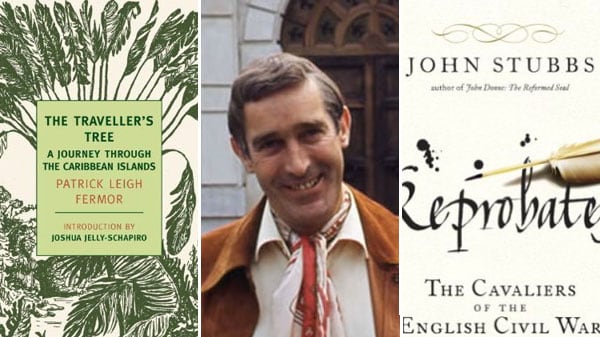Patrick Leigh Fermor’s Cannibalism
The death of the 96-year-old travel writer and war hero Patrick Leigh Fermor has produced much reminiscence in the British press, mostly about guerrilla operations in wartime Greece and the love of Latin poetry shared with Nazi enemies. The TLS diarist, JC, recalls this week some of the great man’s earlier interests: “There was a time in the early 1950s when, upon arrival in the TLS office of a book about cannibalism or voodoo, the editor would drop it in an envelope and say, "This is one for Paddy."
In his first book, The Traveller’s Tree, an account of a journey by schooner through the Caribbean islands published in 1950, Paddy was in pursuit of "the whole phenomenon of Afro-American religion." Before long, the TLS was commissioning the former mountain fighter and Intelligence Corps liaison officer to write on related matters. He could open a review of a book on Haiti in 1953 by telling readers that "The bibliography of voodoo—or voudoun, as some purists insist, with little basis, on spelling it—mounts impressively." A discussion of cannibalism in the correspondence columns of the TLS was just the sort of thing to elicit a contribution from Fermor: "Apropos of the recent letters about the ethical and culinary aspects of cannibalism, may I quote from a book I wrote years ago...."
There followed a list of the gustatory advantages of various folk, according to the palates of the Caribs who "invaded the Caribbean chain, eating all the male Arawaks they could lay hands on and marrying their widows." The book he wished to quote from was, of course, The Traveller’s Tree (it was by now 1980), which included this pre-Columbian version of a restaurant review: "French people were considered delicious, and by far the best of the Europeans, and next came the English. The Dutch were dull and rather tasteless, while the Spanish were so stringy and full of gristle as to be practically uneatable."

Roaring Boys and Cavalier Poets
England’s 17th-century Cavalier Poets are the subject of a new book by John Stubbs, reviewed in the TLS this week by Norma Clarke.
They included both William Davenant, a godson of Shakespeare and Sir John Suckling, the inventor of the card game cribbage. They are now “a largely forgotten pocket of writers,” having suffered along with their royal cause, but their writings established the myth of men who loved their king and were "glamorous, living for the moment, witty and sexy." Davenant wrote royal masques and raised royal munitions. Suckling was a gambler as well as creator of games, a bit of a cheat but a fine outfitter of his soldiers in "white doublets and scarlet breeches." Through the eyes of militant parliamentarians, these fashionable courtiers who sang of wine and women, dressed in silks, and swaggered arrogantly from tavern to theater were degenerates, reprobate "roaring boys." Stubbs seeks to restore both the Cavaliers’ literary reputations and the sense of shame and failure, recklessness, and violence even before the victory of the Roundheads.
The Welsh James Bond
The Daleks were evil space monsters that invaded British television screens in 1963. For two decades, playgrounds were filled with the staccato squawks of shuffling children threatening to "ex-term-in-ate." As Frances Wilson recalls this week, it looked in the 1990s as if the Daleks had themselves been exterminated by the BBC, but in 2005, after a 16-year break, Dr. Who—the space-time traveling adventure that gave rise to them—returned to its former Saturday night slot. The reappearance of the "pepper pots on rubber casters" coincided with the return to office of Prime Minister Tony Blair. A pull-out poster read "Vote Dalek!"
The man who invented the Daleks was Terry Nation, a chain-smoking, socialist spiv who might himself have been invented by Martin Amis. As Alwyn W. Turner describes in his new biography, Nation skipped university and went to London, where he wrote for the comedian Tony Hancock. According to Nation, the concept of the Daleks was his alone, born from watching a performance of Russian dancers whose costumes made them look as though they were floating. "I’ve had this brilliant idea for some baddies." he said to his wife. "I’m going to call them Daleks." "Drink your tea while it’s hot," Mrs. Nation replied. According to Hancock, the idea of an android shaped like "an inverted cone, covered in ping pong balls and with a sink plunger sticking out of its head" had been his: "That bloody Nation! He’s stolen my robots."





